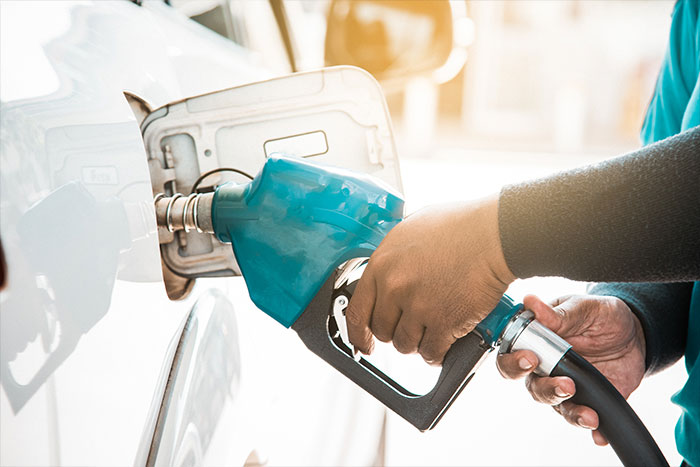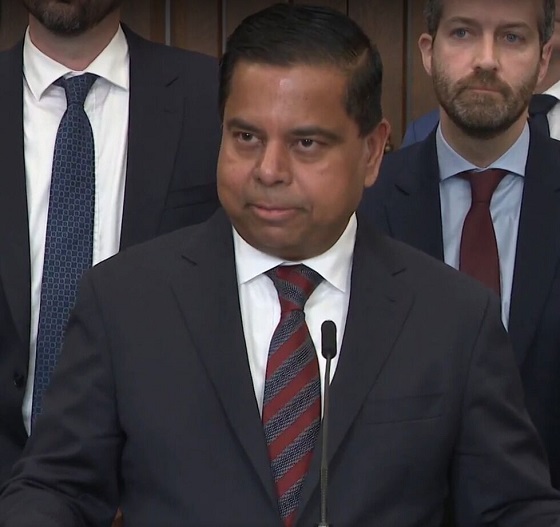Alberta
Alberta drivers to feel some relief from crushing energy prices

Providing relief for fuel and utility costs
Albertans will see lower fuel and utility bills through action to address rising costs.
Alberta’s government will stop the collection of the provincial fuel tax to offer Albertans relief from current high fuel prices. Currently, Albertans pay 13 cents per litre in fuel tax. This change will come into effect April 1.
The federal carbon tax rate on gasoline is set to increase again on April 1, from just under nine cents per litre to just over 11 cents per litre.
“We’ve heard Albertans’ concerns about the rising cost of living loud and clear. While the federal government is set to increase the carbon tax April 1, Alberta’s government is taking the opposite approach and stepping up to offer relief. Stopping the provincial fuel tax puts money back in the pockets of Albertans when they need it most.”
“Many Albertans expressed concerns about increasing prices on everyday goods when I consulted with them ahead of this year’s budget. The best thing government can do during inflationary times is to spend less, borrow less and tax less. That’s why today we are introducing new measures to help with the cost of fuel by reducing the provincial fuel tax, providing much-needed relief to everyday Albertans.”
Alberta’s government will also provide $150 electricity rebates to help Albertans pay for the high bills they faced this winter. More than one million homes, farms and businesses are expected to receive a $50 monthly rebate for three months. These retroactive rebates will help defray the high costs that many families and businesses paid in recent months.
Alberta’s government will work with utilities and regulators to determine exact details, including rebate timing. This includes working to have the rebates applied directly to consumers’ bills.
This rebate will combine with the Natural Gas Rebate program announced in Budget 2022 to provide real relief for Albertans.
“Utility prices are in part due to market conditions, and in part due to punishing policies from the former provincial government and the federal government. As our government works hard to responsibly manage system costs, we are also working tirelessly to increase generation investments to bring new supply on to the market. As this long-term work continues, a rebate to help offset these costs for Alberta families and small businesses will help provide support when they need it most.”
Collection of the fuel tax will be paused for:
- gasoline – $0.13 per litre
- diesel – $0.13 per litre
- marked gasoline and marked diesel – $0.04
Because the GST also applies to provincial fuel taxes, the 13-cent reduction will also reduce the GST by 0.65 cents per litre, for total tax savings of about 13.6 cents per litre of gasoline and diesel.
The government will review the collection of the fuel tax on a quarterly basis and, if required, consider reinstating collection in stages, based on the average price of West Texas Intermediate (WTI) over a number of weeks. The government will not start to reinstate collection before July 1.
Alberta’s fuel tax is reported and remitted by refiners and large wholesalers and included in the price Albertans pay at the pump. The government will provide information for stakeholders, including fuel retailers, on the fuel tax pause.
Alberta
Alberta’s grand bargain with Canada includes a new pipeline to Prince Rupert

From Resource Now
Alberta renews call for West Coast oil pipeline amid shifting federal, geopolitical dynamics.
Just six months ago, talk of resurrecting some version of the Northern Gateway pipeline would have been unthinkable. But with the election of Donald Trump in the U.S. and Mark Carney in Canada, it’s now thinkable.
In fact, Alberta Premier Danielle Smith seems to be making Northern Gateway 2.0 a top priority and a condition for Alberta staying within the Canadian confederation and supporting Mark Carney’s vision of making Canada an Energy superpower. Thanks to Donald Trump threatening Canadian sovereignty and its economy, there has been a noticeable zeitgeist shift in Canada. There is growing support for the idea of leveraging Canada’s natural resources and diversifying export markets to make it less vulnerable to an unpredictable southern neighbour.
“I think the world has changed dramatically since Donald Trump got elected in November,” Smith said at a keynote address Wednesday at the Global Energy Show Canada in Calgary. “I think that’s changed the national conversation.” Smith said she has been encouraged by the tack Carney has taken since being elected Prime Minister, and hopes to see real action from Ottawa in the coming months to address what Smith said is serious encumbrances to Alberta’s oil sector, including Bill C-69, an oil and gas emissions cap and a West Coast tanker oil ban. “I’m going to give him some time to work with us and I’m going to be optimistic,” Smith said. Removing the West Coast moratorium on oil tankers would be the first step needed to building a new oil pipeline line from Alberta to Prince Rupert. “We cannot build a pipeline to the west coast if there is a tanker ban,” Smith said. The next step would be getting First Nations on board. “Indigenous peoples have been shut out of the energy economy for generations, and we are now putting them at the heart of it,” Smith said.
Alberta currently produces about 4.3 million barrels of oil per day. Had the Northern Gateway, Keystone XL and Energy East pipelines been built, Alberta could now be producing and exporting an additional 2.5 million barrels of oil per day. The original Northern Gateway Pipeline — killed outright by the Justin Trudeau government — would have terminated in Kitimat. Smith is now talking about a pipeline that would terminate in Prince Rupert. This may obviate some of the concerns that Kitimat posed with oil tankers negotiating Douglas Channel, and their potential impacts on the marine environment.
One of the biggest hurdles to a pipeline to Prince Rupert may be B.C. Premier David Eby. The B.C. NDP government has a history of opposing oil pipelines with tooth and nail. Asked in a fireside chat by Peter Mansbridge how she would get around the B.C. problem, Smith confidently said: “I’ll convince David Eby.”
“I’m sensitive to the issues that were raised before,” she added. One of those concerns was emissions. But the Alberta government and oil industry has struck a grand bargain with Ottawa: pipelines for emissions abatement through carbon capture and storage.
The industry and government propose multi-billion investments in CCUS. The Pathways Alliance project alone represents an investment of $10 to $20 billion. Smith noted that there is no economic value in pumping CO2 underground. It only becomes economically viable if the tradeoff is greater production and export capacity for Alberta oil. “If you couple it with a million-barrel-per-day pipeline, well that allows you $20 billion worth of revenue year after year,” she said. “All of a sudden a $20 billion cost to have to decarbonize, it looks a lot more attractive when you have a new source of revenue.” When asked about the Prince Rupert pipeline proposal, Eby has responded that there is currently no proponent, and that it is therefore a bridge to cross when there is actually a proposal. “I think what I’ve heard Premier Eby say is that there is no project and no proponent,” Smith said. “Well, that’s my job. There will be soon. “We’re working very hard on being able to get industry players to realize this time may be different.” “We’re working on getting a proponent and route.”
At a number of sessions during the conference, Mansbridge has repeatedly asked speakers about the Alberta secession movement, and whether it might scare off investment capital. Alberta has been using the threat of secession as a threat if Ottawa does not address some of the province’s long-standing grievances. Smith said she hopes Carney takes it seriously. “I hope the prime minister doesn’t want to test it,” Smith said during a scrum with reporters. “I take it seriously. I have never seen separatist sentiment be as high as it is now. “I’ve also seen it dissipate when Ottawa addresses the concerns Alberta has.” She added that, if Carney wants a true nation-building project to fast-track, she can’t think of a better one than a new West Coast pipeline. “I can’t imagine that there will be another project on the national list that will generate as much revenue, as much GDP, as many high paying jobs as a bitumen pipeline to the coast.”
Alberta
Alberta Premier Danielle Smith Discusses Moving Energy Forward at the Global Energy Show in Calgary

From Energy Now
At the energy conference in Calgary, Alberta Premier Danielle Smith pressed the case for building infrastructure to move provincial products to international markets, via a transportation and energy corridor to British Columbia.
“The anchor tenant for this corridor must be a 42-inch pipeline, moving one million incremental barrels of oil to those global markets. And we can’t stop there,” she told the audience.
The premier reiterated her support for new pipelines north to Grays Bay in Nunavut, east to Churchill, Man., and potentially a new version of Energy East.
The discussion comes as Prime Minister Mark Carney and his government are assembling a list of major projects of national interest to fast-track for approval.
Carney has also pledged to establish a major project review office that would issue decisions within two years, instead of five.
-

 Business17 hours ago
Business17 hours agoCarney’s European pivot could quietly reshape Canada’s sovereignty
-

 Alberta17 hours ago
Alberta17 hours agoAlberta’s grand bargain with Canada includes a new pipeline to Prince Rupert
-

 Crime1 day ago
Crime1 day agoManhunt on for suspect in shooting deaths of Minnesota House speaker, husband
-

 Bruce Dowbiggin2 hours ago
Bruce Dowbiggin2 hours agoWOKE NBA Stars Seems Natural For CDN Advertisers. Why Won’t They Bite?
-

 Crime2 hours ago
Crime2 hours agoMinnesota shooter arrested after 48-hour manhunt
-

 Energy2 hours ago
Energy2 hours agoCould the G7 Summit in Alberta be a historic moment for Canadian energy?
-

 conflict3 hours ago
conflict3 hours ago“Evacuate”: Netanyahu Warns Tehran as Israel Expands Strikes on Iran’s Military Command



